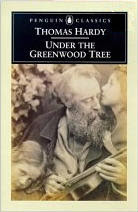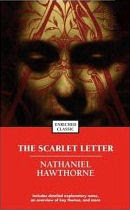888 Challenge #9
 In Church Lane, a prostitute named Caroline lives and works in a single room in a building close to falling down. Her old friend Sugar lives in somewhat more salubrious surroundings near Silver Street, where she has achieved city-wide fame as the girl who never says no. Sugar’s new patron is William Rackham, heir to a perfume empire in which he previously took zero interest. That changes when he needs the money in order to set Sugar up as his mistress. Through him she enters a new sphere of society, one from which it becomes increasingly difficult to return to visit her old friends.
In Church Lane, a prostitute named Caroline lives and works in a single room in a building close to falling down. Her old friend Sugar lives in somewhat more salubrious surroundings near Silver Street, where she has achieved city-wide fame as the girl who never says no. Sugar’s new patron is William Rackham, heir to a perfume empire in which he previously took zero interest. That changes when he needs the money in order to set Sugar up as his mistress. Through him she enters a new sphere of society, one from which it becomes increasingly difficult to return to visit her old friends.
She also becomes acquainted with the doings of the people William knows. His wife Agnes is mad, given to erratic or childlike behaviour and unaccountable sayings. His daughter Sophie is hidden away in the furthest reaches of the house. His old friends Ashwell and Bodley are determined to set the literary world on its ears with their irreverent publications. And his brother Henry’s attempts at a religious life are hampered by his persistent lustful thoughts about Emmeline Fox, a do-gooding widow with frizzy hair, a long face, and what all but she believe to be a terminal case of consumption. In the end it is Sugar’s knowledge of the Rackhams that will seal her - and their - fate.
I wanted to love this book. And for a time I did. The beginning hooked me; the odd way of narrating that was like first, second, and third person rolled into one and the following of one character in order to meet another. The narrator is omniscient, in the manner of real Victorian novels, and addresses the reader much in the way of a tour guide showing you around a strange time and place and helping you make the right connections. I could almost picture myself walking the crowded London streets in the wake of one character or another. Bodley and Ashwell made me laugh with their discussion of their book on the efficacy of prayer (or rather the lack thereof), and I hoped that Sugar would turn out to be a new Becky Sharp.
But as the book wore on my interest in it did an Emmeline Fox and went into a decline. Sugar’s manipulations, Agnes’s madness, and William’s increasingly bad temper became tedious, and I’d catch myself thinking, ”Why am I reading about you?” The characters I liked, or at least liked reading about - Caroline, Henry, Emmeline, Ashwell and Bodley - were only secondary ones, not present often enough to compensate for my frustration with the main cast. Sugar was no Becky; granted it’s been a while - okay, nearly six years - since I read Vanity Fair, but I recall her as being in some degree impulsive. Sugar was the ultimate schemer - everything she did was planned, and hardly a word left her mouth without its possible effects being carefully considered. I didn’t much like Agnes, either, but if her diaries were anything to go by she was too much of an airhead to be any more pleasant sane. Emmeline I did like, but in a modern novel it was disconcerting that she was one extremely few women in the whole 800+ pages who couldn’t be pigeonholed as saint or whore. (Yes, Agnes was mad, but she was also an exaggerated Victorian ideal: petite, blonde, religious, dependent, so innocent as to be monumentally ignorant, and not the brightest candle in the parlour.)
Overall this was a terribly difficult book to grade. At its best it was brilliant, depicting the lower end of Victorian life in all its well-researched seediness (and be warned that that does include the c-word ... not infrequently, either). Even at its worst I retained a curiosity about what happened. At the same time I wanted it to end quickly, just to get it over, with the result that I sped through many dozens of pages each night to emerge with my brain feeling groggy and glutted with words. When it at last arrived, the end didn’t satisfy, leaving too many loose ends and an urge to slap William. Yet I am sure that it will prove to be a book not soon forgotten.
Rating: C+




















